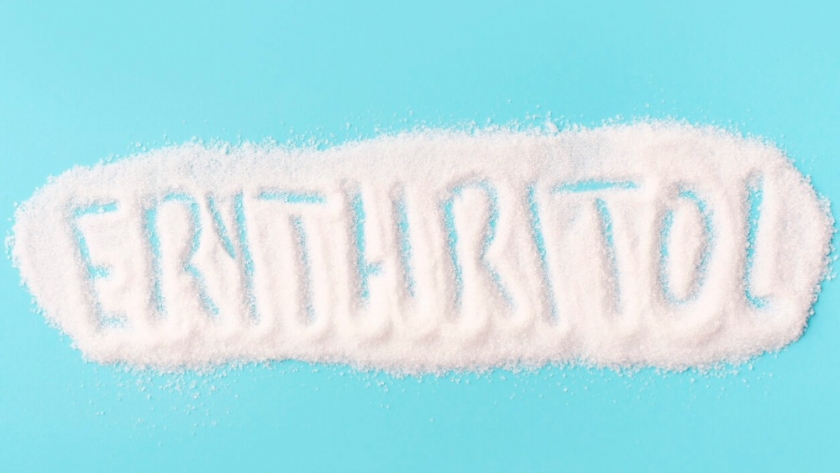
By Agroempresario.com
In a preliminary ruling that could reshape the U.S. market for zero-calorie sweeteners, the Department of Commerce has sided with Cargill, the nation’s only domestic erythritol manufacturer, in its anti-dumping case against China. While this move is seen as a protectionist victory for U.S.-based producers, industry insiders warn that the fallout may be significant for food and beverage companies relying on organic and Non-GMO erythritol, which Cargill does not produce.
The case centers on accusations that Chinese erythritol manufacturers flooded the global market with ultra-cheap product after overexpanding their production capacity between 2021 and 2023. According to Cargill, Chinese producers were left with surplus inventory following a wave of reformulations by major Chinese beverage companies. This excess stock was sold overseas at "rock bottom prices," driving down global prices and severely disrupting competition.
The consequences of this were especially felt in the United States, where Cargill claimed that customer inventories became bloated, prices collapsed, and the domestic industry was placed in jeopardy. “If recent trends persist, the domestic industry is threatened with an even bleaker future,” Cargill argued in its petition.
On July 14, the Department of Commerce issued a preliminary determination in favor of Cargill, imposing triple-digit anti-dumping duties on U.S. imports of Chinese erythritol. These new tariffs effectively price Chinese erythritol out of the American market, a decision that Cargill supports but that may unintentionally harm others in the industry.
While some companies can source domestically from Cargill, others—especially those producing organic or Non-GMO certified products—face a dilemma. That’s because Cargill uses GMO-derived dextrose (from genetically modified corn) in its fermentation process, rendering its erythritol incompatible with certain labeling requirements.
Kash Rocheleau of Oregon-based Icon Foods, a company that imports sweeteners, emphasized the issue in a statement to AgFunderNews: “Our argument is that Cargill does not produce organic and Non-GMO certified erythritol, so we don’t have the option of just switching [to the domestic supplier].”
The challenge doesn’t stop there. European suppliers like Jungbunzlauer (JBL), which successfully secured their own anti-dumping ruling in 2024 and manufacture erythritol from non-GMO feedstocks, are reportedly running near full capacity. “They really leaned into their market after they won their case,” said Rocheleau, “and now have very little capacity to overflow into the U.S.”
The ripple effects of the Commerce Department’s ruling could be profound. According to Rocheleau, the U.S. market for non-GMO and organic erythritol is drying up quickly. Importers who brought in product between March and July may still be liable for retroactive duties, adding financial uncertainty to an already volatile market.
This creates a major problem for companies that need erythritol for clean-label products. “Basically, the U.S. market is going to dry up on non-GMO erythritol, it’s going to dry up on organic, and once it’s dried up, it’s just not going to be available,” Rocheleau said. For many, switching to alternative sweeteners like allulose or tagatose is not an easy option. Allulose is more expensive, not approved in the EU, and banned by Whole Foods; tagatose, meanwhile, must be labeled as added sugar, disqualifying it from certain low-calorie product claims.
Icon Foods is lobbying for a carve-out that would exempt certified organic and Non-GMO erythritol from the new duties. “We understand that there would need to be safeguards in place,” said Rocheleau, “but this exemption is critical for keeping options available for companies that can’t use Cargill’s product.”
The challenge lies in creating verification protocols robust enough to prevent fraudulent claims by exporters. If the Department of Commerce rejects such exemptions, some CPG firms may be forced to reformulate or discontinue products due to lack of compliant sweeteners.
This case is part of a broader trend of U.S. trade policy under scrutiny, especially concerning sweetener imports. Under both the Trump and Biden administrations, tariffs have been selectively applied to sweetening agents from various countries.
According to Rocheleau, the results have been inconsistent. For instance, steviol glycosides and allulose from China are currently only subject to a 10% baseline tariff and escape broader restrictions, while monk fruit extract was recently reclassified under a more favorable HS code. Other ingredients like inulin and tapioca fiber face uncertain futures as additional duties are considered.
“The lesson for us is diversification,” Rocheleau said. “We work with two to three suppliers for each SKU to stay secure in the supply chain. We need to be able to pivot really quickly.”
The Department of Commerce is expected to issue a final ruling in December 2025. If the preliminary findings are upheld, Chinese erythritol will remain largely out of reach for U.S. importers. For Cargill, it may mean greater market share—but for hundreds of smaller CPG brands, it could result in higher prices, limited ingredient options, and stalled innovation in the low-calorie product space.
Until then, stakeholders across the supply chain—from U.S. manufacturers and food brands to international suppliers and certifying bodies—are bracing for long-term impacts that could reshape the future of clean-label and diet-friendly products in North America.
Cargill has not issued a public response to the latest developments.
